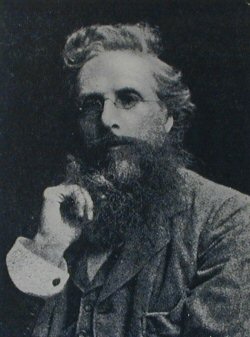 WILLIAM FINDLAY
WILLIAM FINDLAY WILLIAM FINDLAY
WILLIAM FINDLAY UNDER the pen-name of "George Umber," the writings of Dr.
Findlay have long been well known in Glasgow. Perhaps the best known of his
works are "In my City Garden," "Ayrshire Idylls of Other Days," "Robert Burns
and the Medical Profession," "Carmina Medici, the Poems of a Physician," and
"Noah's Epistles," in which he first appeared as a satirist. His literary taste
is hereditary, his maternal uncle, Archibald Mackay, having been the author of
popular songs like "Be Kind to Auld Grannie," and "My First Bawbee," as well as
of the "History of Kilmarnock," of which Dr. Findlay has edited the fifth
edition.
Dr. Findlay himself was born in Kilmarnock in 1846 and
received his education at Kilmarnock Academy and Glasgow University, and he was
one of the last batch of graduates capped in the Old College in High Street in
1870. From that year till his retiral in 1907 he practised in Dennistoun, with
the growth of which he was therefore associated almost from its first
beginnings. He has taken considerable part in the public interests of his
profession in his district, being one of the founders and an ex-president of the
Glasgow Eastern Medical Society, and an ex-president of the Glasgow and West of
Scotland Branch of the British Medical Association, as well as having been first
president of the same association's Eastern Division. At present he is a member
of the Business Committee of the Glasgow University General Council.
He is an enthusiastic admirer of Burns, a vice-president of
the Burns Federation, and frequent proposer of the Immortal Memory on 25th
January, while a number of his poems are included in the latest volume of the
Glasgow Ballad Club. Of Dr. Findlay's family of six sons and two daughters, two
sons follow their father's profession, and one is a rising Glasgow artist.
Back to
Index of Glasgow Men (1909)